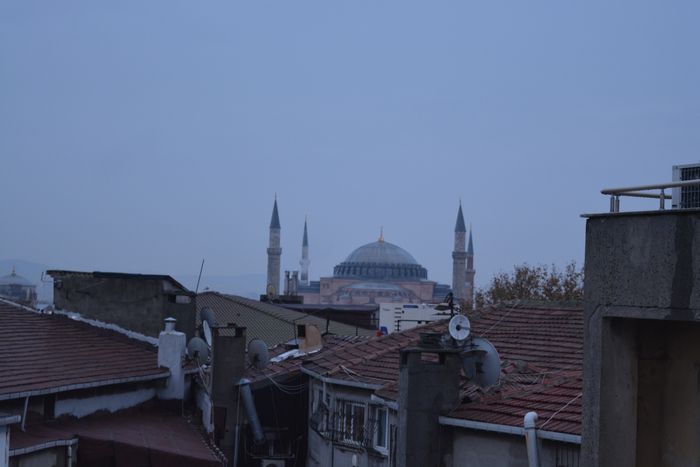Consider how brief are the moments when the sea is calm and peaceful, and how at other times it is swollen, or lashed by waves, as Boreas,**87 or Aparktias,**88 or some other storm-wind disturbs its rest — a sight I have seen myself many a time. An emperor’s life is like that. If he seeks recreation, at once he incurs the displeasure of the critics. If he gives rein to kindly sentiments, he is accused of ignorance, and when he rouses himself to show interest, they blame him for being meddlesome.
If he defends himself or takes blunt reprisals, everyone levels abuse at his ‘wrath’ or his ‘quick temper’. And as for trying to do anything in secret — Athos**89 would be more likely to hide itself from human gaze than an emperor’s deeds to escape the notice of his subjects! No wonder then that no sovereign’s life has been blameless.
Speaking immoderately
28. Naturally, I would have wished that my favourite emperor had been perfect, even if such a compliment was impossible for all the others, but the events of history do not accommodate themselves to our desires. So,**90 divine soul, forgive me, and if sometimes in describing your reign I speak immoderately, concealing nothing and telling the truth, pardon me for it. Not one of your nobler deeds shall be passed over in silence. They shall all be revealed. Likewise, whatever derives not from the same nobility, that too shall be made manifest in my history. And there we must leave the matter and return to our narrative.
29. At the start of his reign Constantine ruled neither with vigour nor with discretion. Apparently, before his accession, he had imagined that being an emperor was to confer on him undreamed-of happiness, something he had never experienced in his life. He had visions, quite unreasonably, of a sudden and complete reversal of his fortunes, and no sooner had he ascended the throne than he attempted to realize these ambitions. Now two things in particular contribute to the hegemony of the Romans, namely, our system of honours and cur wealth, to which one might add a third: the wise control of the other two, and prudence in their distribution.
Unfortunately, Constantine’s idea was to exhaust the treasury of its money, so that not a single obol was to be left there, and as for the honours, they were conferred indiscriminately on a multitude of persons who had no right to them, especially on the more vulgar sort who pestered the man, and on those who amused him by their witticisms. It is wellknown, of course, that there is in the political world a proper scale of honours, with an invariable rule governing promotion to a higher office, but Constantine reduced this cursus honorum to mere confusion and abolished all rules of advancement.
Read More about Zoe and Theodora part 62








